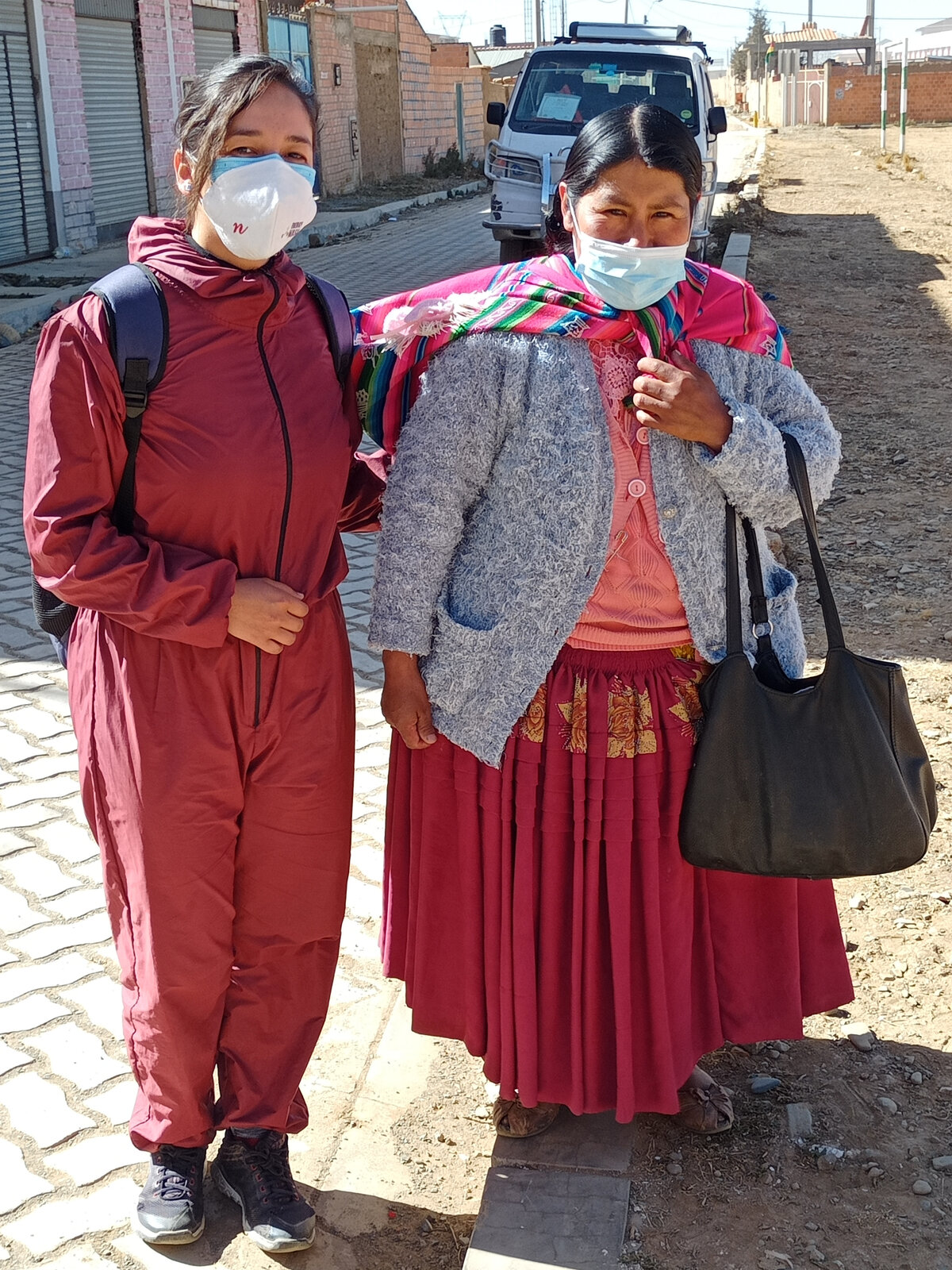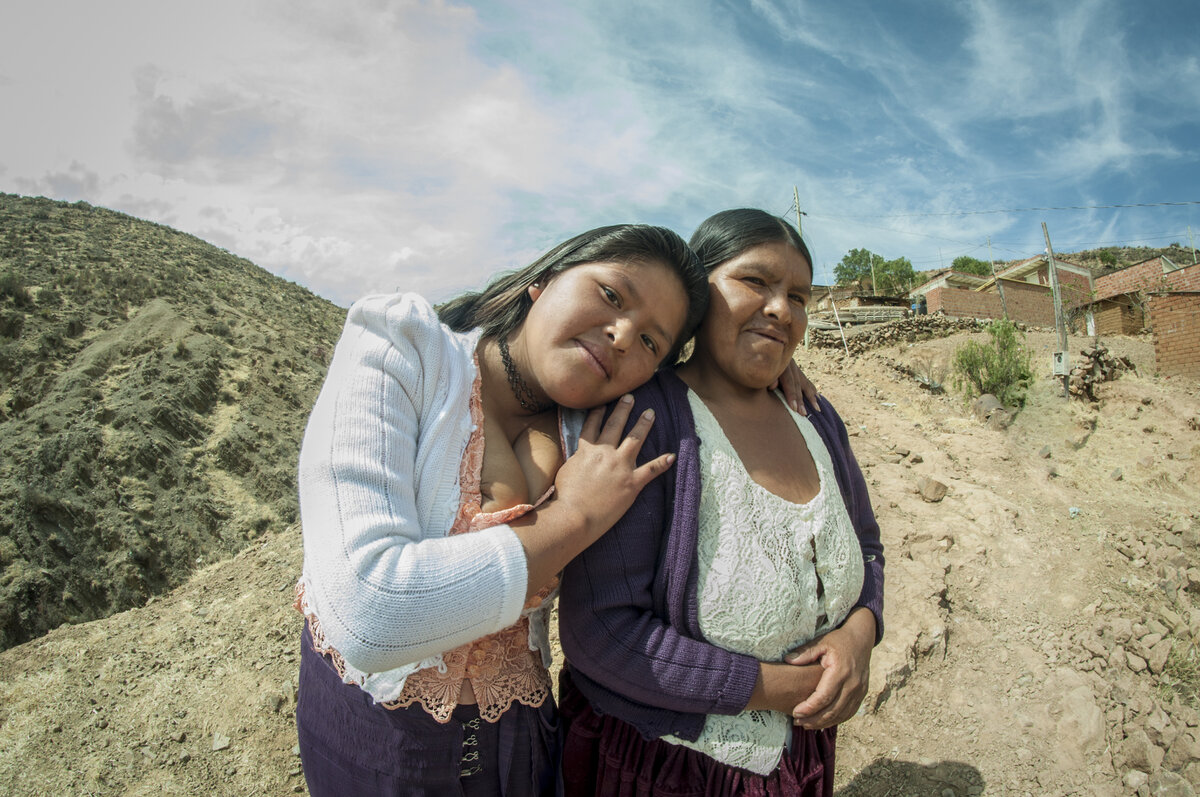- Austausch & Vernetzung
- Advocacy
- Unsere Themen
Von Pamela Castro Morales
The COVID-19 pandemic and its psycho-socio-economic consequences have highlighted mental health as a priority issue. There is a clear need for strengthening our health systems including an appropriate population wide mental health response especially for vulnerable groups such as women, children, people with disabilities and others in low and middle incomes countries in Latin America. Women who are pregnant, postpartum or experiencing intimate partner violence are at especially high risk for developing mental health problems during the pandemic, therefore we need strategies for preventing and treating these mental health consequences.

The Americas, particularly Latin America and the Caribbean, is the region most affected by COVID-19. In total, the Americas has reported nearly 74 million COVID-19 cases and 1.9 million deaths, that means more than a third of COVID cases and more than 40% of deaths were reported globally until July 2021 (PAHO, 2021). Also, the health systems have collapsed and shown limitations in their ability to respond to the populations physical needs and even more limitations to provide any kind of psychosocial support. An additional issue is the significant increase in violence against women.
It is clear that health systems have an important role to play in responding to and preventing violence against women. This role includes helping to identify abuse early, providing victims with treatment, and referring women to appropriate and informed care. Also, they must work to prevent violence from ever taking place providing at least basic support (basic helping skills and Psychological First Aid) and referral if needed.
However, implementing these actions has become a challenge for many countries in Latin America. PAHO Director Carissa F. Etienne warned that the effects of COVID-19 are disproportionately impacting women and called for heightened attention to the pandemic’s gender disparities. To overcome this pandemic, countries must recognize and respond to the gender dynamics of this outbreak starting with ensuring that women and girls can access the health services they need.

Because of the lack of access to mental health services and psychosocial support in Latin America, it is noticeable that some countries mental health status is worsening. For example, during 2021, Bolivia has been identified as one of the countries with the highest rates of violence against women (Unicef, 2021). At least 7.5 out of 10 women experience violence in their lifetime, while more than 100 women on average are killed each year because of their gender.
It is important to ask what makes women more predisposed to vulnerabilities and adverse impacts in order to provide strategies for preventing and treating these mental health consequences. As expected, “women who are pregnant, postpartum or experiencing intimate partner violence are at especially high risk for developing mental health problems during the pandemic” (Almeida, 2020). For women with the mentioned characteristics of high risk is important to provide any social support which could lead to prevention, early detection and provide treatment of any mental health problem.
The most common mental problem in pregnant women is perinatal depression. Before the pandemic, in high income countries 1 in 10 women develop perinatal depression whereas1 in 5 women in developing countries suffered from perinatal depression, so it is a public health concern and now as the number of any mental health problems have risen because the pandemic it is an even more concerning issue.
This condition can also impact on the health and development of infants. Some research has shown that infants of depressed mothers are more likely to be undernourished and have higher rates of diarrheal problems. It also will affect the optimal nourishing and affectionate relationship between mother and baby. As it is not recommended to provide medication, psychosocial interventions can make a great difference to help mothers overcome their depression.

To address perinatal depression with psychosocial intervention it is important to take in account that it must be an evidence-based tool and a community-based intervention that can coordinate with the health system and community actors to achieve the detection and treatment of pregnant women with perinatal depression. The psychosocial intervention that meets these parameters is Thinking Healthy developed by the World Health Organization.
This intervention aims to:
To activate the health system for identification and referral it is important to work with the primary health care level to activate at least the identification of women in high risk to have the adequate support. Therefore, a first step to implement Thinking Healthy is to start with the program mhGAP, specifically with the mhGAP Intervention Guide (mhGAP-IG) for mental, neurological and substance use disorders for non-specialist health settings, which is a technical tool for primary health care workers (WHO, 2010).
As described above, implementing the Thinking Healthy program (WHO 2015) will be a way to support pregnant women and includes the post-partum stage too. However, as the numbers suggest many women are experiencing violence, that is why it is important that programs have the capacity to respond to cases of violence, having the referral services available and other psychosocial services to provide more specific support.
Providing mental health support for women's mental health should be extended to their families, and the communities. Wawaspaq voice quechua means: For the children) is a community mental health program implemented in Bolivia by local partners of CBM. This program includes providing services for women at high risk, using Thinking Healthy, the mhGAP guide and other strategies as peer support groups. To contribute towards the elimination of violence in the communities, they use a comprehensive community-based approach with families, also including schools and foster care facilities and the broader community using a methodology for prevention and early detection of child abuse.
Therefore, it is possible to eliminate violence against women through prevention, but it is important to focus on developing a successful prevention strategy which requires a commitment of many stakeholders and sectors, including all actors in the community. Also, any program must have a gender focus as it is a cross cutting topic, to address violence against women. The actions taken during the COVID 19 pandemic must continue into the long term, because we must have improved quality and accessible health care systems to provide the necessary support for women especially with regards to their mental health.